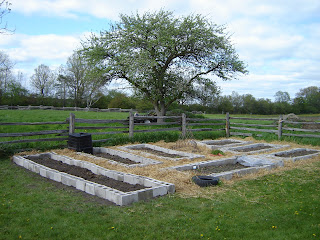easy being green...?
In a few hours I leave for Marco Island, Florida (oh, what a hard life I lead...!), where I'll be leading worship at the Leadership Seminar of the Ecumenical Stewardship Center.
This is a group of leaders of numerous Christian denominations across North America who get together annually with a focus on "stewardship" agenda. And this year the emphasis is on stewardship and environmental sustainability. Sound like something I'd be interested in?
The title chosen for the event is "It's Easy Being Green," and quite frankly, I don't buy it. Which puts me in an interesting position for the next few days, wouldn't you say?
I'm sure, at one level, the selection of this title simply represents a need to have something snappy and memorable and positive-and-action-oriented... I don't expect to be fundamentally at odds with the organizers or presenters... I'm looking forward to a very stimulating and challenging and meaningful time, and I expect to be learning a lot.
But I must say, whenever I hear a statement like "it's easy being green" I'm immediately on the look-out for someone trying to sell me something. If you just buy this product, or invest in this initiative, or do this or that, then you'll be "green"... and if everyone did it - just follow these three simple steps - then we wouldn't have to worry about that pesky little ecological crisis anymore.
Sorry, but I'm not convinced. I think there's lots of stuff we can be doing - and a lot of it is simple - that is vitally, vitally important. But "easy being green?" I don't think this kind of statement takes seriously enough the kind of economic and cultural transformation that will need to happen - and that will happen one way or another, whether we like it or not - in a transition out of the era of cheap oil and exorbitant consumption. A global economic model that is by definition in desperate crisis when "consumer spending" goes down by a fraction... I'm sorry, but I don't believe the kind of change that is needed here is going to be "easy." Not by a long shot.
Case-in-point. How many of us going to the Leadership Seminar will be flying? I will. I tried to arrange to go by train - the better ecological choice - but it wasn't "easy." In fact, I couldn't figure out how to do it at all (one of the requirements of my P2 musician work visa is that I MUST leave the country the DAY AFTER my last engagement... NO EXCEPTIONS... kinda tough to get by train from South Florida to Toronto by train in that kind of time...). So I'm flying.
No problem. Wouldn't it be "easy" to arrange for some other gigs on the way back home and work my way north by train? I was going to try that too, but ran out of time and didn't want to jeopardize the visa process (the application had to be in 120 days in advance)... so I didn't get it done. Or wouldn't it be "easy" to just say "well, I have this music ministry vocation, but I won't travel to come to your event"...?
Well, no. That wouldn't be easy at all, and I also don't think it would be right.
hmmm...
Don't get me wrong. I'm by no means "down" on this event, or the theme, or the fact that I suspect virtually everyone will be flying to get there (ok, I suppose I am a bit "down" on that last one...). I think this is good and vital agenda, and a good and vital event, and I can't wait to meet and hear from and learn from all these good and vital people (and all the others too, who I'm sure will be just as "good and vital").
Just don't tell me that following through on this agenda is going to be "easy." I don't believe it.
Makes me think of the guy with the catchy slogan "Take up your cross and follow me." Not exactly easy. Life-giving, fulfilling, community-and-joy-and-pain-filled... yes. Spirit-led, yup. Worthwhile, you bet. GOOD NEWS - absolutely.
Easy? I don't think so.
Labels: church, ecology, sustainability and music







